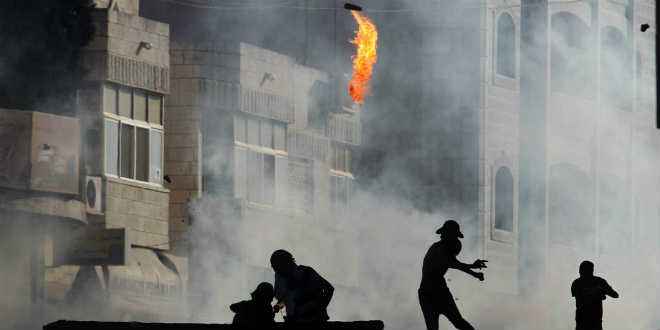
In a recent column, influential New York Times columnist Thomas Friedman declared that a third Intifada against Israel had begun.
Intifada is an Arabic word which means “shaking off” and is used to refer to a popular uprising. The First Intifada took place in Israel between December 1987 and September 1993. The Second Intifada lasted from September 2000 to February 2005. The two uprisings cost over 1,100 Israelis their lives, in addition to thousands more injured. 64 foreigners were killed in Israel during the Second Intifada. Palestinian casualties number roughly 5,000 over both rebellions. Both Intifadas were instigated by what Palestinians considered oppressive “occupation” policies. The first began when an Israeli army vehicle crashed into several Palestinian cars at a land crossing and Palestinians responded violently. The second occurred when a walk on the Temple Mount by Ariel Sharon triggered Arab riots.
In his column, Friedman muses that he was surprised the Palestinians had not responded to the current peace talks with another uprising. “You get many explanations from Palestinians: they’re too poor, too divided, too tired or that they realize these uprisings, in the end, did them more harm than good, especially the second,” he says.
He then observes, however, that perhaps the Third Intifada is actually already underway. “It’s the one that Israel always feared most — not an intifada with stones or suicide bombers, but one propelled by nonviolent resistance and economic boycott.”
He accuses the EU of leading the current intifada. “Israel’s economy depends on technology and agricultural exports to Europe and on European investments in its high-tech industries,” he observes. Current BDS (Boycott, Divestment and Sanctions) trends in Europe are providing Palestinians with leverage this time around. US Secretary of State John Kerry is not wrong in saying failed peace talks would lead to further boycotts, he points out.
The big difference, Friedman says, between the two intifadas and the current situation, is that “the Third Intifada is based on a strategy of making Israelis feel strategically secure but morally insecure.
“The first two intifadas failed in the end because they never included a map of a two-state solution and security arrangements. They were more raw outbursts of rage against the occupation. You cannot move the Israeli silent majority when you make them feel strategically insecure and morally secure, which is what Hamas did with its lunatic shelling of Israel after it withdrew from Gaza; few Israelis were bothered by pummeling them back. President Anwar Sadat of Egypt, though, got all he wanted by making Israelis feel strategically secure but morally insecure about holding any of his land.”
Friedman acknowledges that some boycotters are fuelled by underlying anti-Semitism, but “that doesn’t mean that implanting 350,000 settlers in the West Bank and turning a blind eye to dozens of wildcat settlements — that even Israel deems “illegal” — is in Israel’s interest or smart.”
He ends by warning, “this incessant trashing of Kerry by Israeli ministers, and their demand that Palestinians halt all “incitement” — but that Israel be free to keep building settlements in their face — is not winning Israel friends in Europe or America. It is only energizing the boycotters.”





